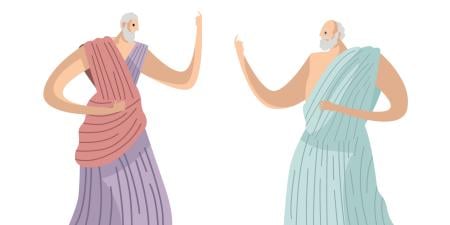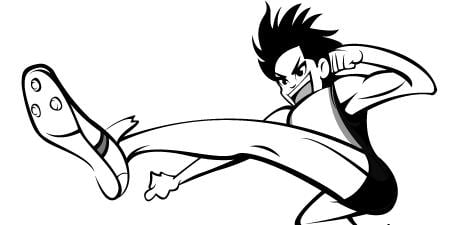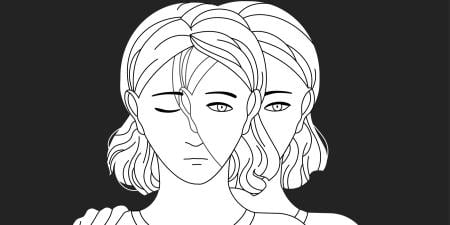Ten years ago, a survey of 2,316 medical students in 16 US medical schools revealed that 84 percent had been the subject of belittlement in the course of their training and 42 percent considered that their treatment had amounted to harassment [1]. The sources of the harassment and belittlement included fellow students, nurses, and patients, but by far the most significant source was qualified doctors, ranging from residents to professors. In this regard, the observations of the survey reflect a longstanding approach to medical education that is common to developed countries throughout the world.
I underwent my medical training in the UK in the early 1980s under a regime that seems to have evolved little over the subsequent 30 years. The sense of dread that surrounded us as the professor’s teaching ward round approached was a feeling I can still recall with uncomfortable clarity. As we moved from patient to patient, we each prayed that we would not be the one targeted for humiliation that day. As the smirking audience of junior doctors, therapists, pharmacist, ward sister, and (worst of all) student nurses looked on, my heart would sink as I heard the dreaded words: “So, Belsey, what can you tell us about the problem this patient has?”
You knew that however well you presented the case, somewhere along the line you would trip up and give the predatory professor his opportunity to expose your inadequacies. Sometimes it would be your lack of medical knowledge; sometimes the question that you failed to ask the patient that would have revealed the root of the problem, or sometimes your ineptitude at eliciting the required clinical signs. On one memorable occasion, when I had appeared to cover all the bases clinically, the professor turned to me and berated me for attending his ward round wearing a plaid shirt that was clearly inappropriate for an aspiring doctor.
But for all the grandstanding of the professors, I think we understood that humiliating the students was all part of the show and was rarely meant personally. However embarrassing it was, I’m not sure that it did me any great psychological harm. Far more difficult to deal with was the low-grade bullying of the junior doctors—perhaps only a couple of years older than we were, they had yet to achieve sufficient self-confidence to relax in the presence of students. In our hospital the students had the dubious distinction of having to wear a waist-length white jacket, while the fully qualified staff sported their badge of office—the full-length white coat. This visible difference served to underline the chasm of knowledge and skills that seemed to divide us. These junior doctors appeared impossibly competent to us, loved to flaunt their superior knowledge in front of both patients and ward staff, and made sure this was underlined by our failure to achieve the simple practical tasks that they set us. I wondered how it was that they could set up an IVI in a couple of minutes, while I struggled for half an hour to gain venous access, sweating and blushing as I apologised to the poor patient nursing multiple perforations from my failed attempts. I darkly suspected that the junior doctor would check out the patients in advance and make sure that I was only given those with calcified or collapsing veins to practice on, while reserving for herself those with whom rapid success was guaranteed.
Emerging from my years of training and walking onto the ward with my brand-new name badge with the magical prefix “Dr,” I promised myself that I would never descend to humiliating the students assigned to help me—not least because I was uncomfortably aware that my own knowledge scarcely exceeded theirs. And yet, within a few months, I found myself emulating my erstwhile tormentors—using all the tactics that had made the past few years such misery. I would stand in the crowd on the professor’s ward round, enjoying the discomfort of the new students as they struggled to meet the impossible standard. I would send a student to clerk in a new admission, knowing full well that the old familiar alcoholic patient that he or she had been sent to see would bury the few facts relevant to his diagnosis in a sea of garrulous irrelevance, keeping the student busy for an hour or more without providing any insight into the underlying problem. I would even play the tedious gags on them that every student had to suffer—check the pedal pulses on a double amputee, observe the fundi on someone with a glass eye, interpret the ECG with the limb leads reversed.
I asked myself, “Why am I doing this?” and the awful truth gradually dawned—because it works.
Many years later, I was asked to take part in a TV show in which a group of final-year medical students were put through a week of 1950s-style ward training. In essence, we subjected them to a traditional regime of education by humiliation in which, although to some extent artificially staged for the TV cameras, the action was unscripted and was treated seriously by all concerned.
At the outset, the students had a good grasp of the basic skills required to take a history and examine a patient, but most of them struggled to place the information gathered into any sort of diagnostic framework. After a week of being put on the spot and being forced to face up to the shortcomings of their thought processes on camera, their approach to the task was dramatically transformed, enabling them to present the information clearly and systematically and arrive at a rational and justifiable differential diagnosis. Although the show itself was a trivial exercise in daytime TV entertainment, several students told me later that they actually found the experience useful and that it sharpened their performance as they went through their final examinations.
So, if belittlement works, why should we decry its use? The answer is clear—ends do not necessarily justify means. If you beat children every time they misbehave, they will soon stop misbehaving (at least in front of you). This is the power of negative reinforcement—does that mean that child beating is acceptable? Equally, should we endorse traditional student humiliation on the grounds that it works and makes them better doctors? Even if true, I would say not.
Slavishly following traditional educational methods, on the grounds that “it worked when I was at medical school and didn’t do me any harm,” demonstrates a degree of moral vacuity that demeans the medical profession. As scientists and adherents to evidence-based philosophy, we should have the skills to collate and analyze data relating to educational methods in order to define a new teaching paradigm that can achieve our goals without resorting to the philosophy of the playground.
The real challenge will then be to implement the changes. Unless and until there is sufficient demand to change an apparently successful strategy for an unfamiliar approach, we are unlikely to see a significant change in practice. To catalyze change, the next generation of trainers will have to acknowledge both that the problem exists and that it is amenable to change, before they have a chance to be corrupted by the old methods and assumptions. The next generation of trainers is, of course, you.
References
-
Frank E, Carrera JS, Stratton T, Bickel J, Nora LM. Experiences of belittlement and harassment and their correlates among medical students in the United States: longitudinal survey. BMJ.2006;333(7570):682.



